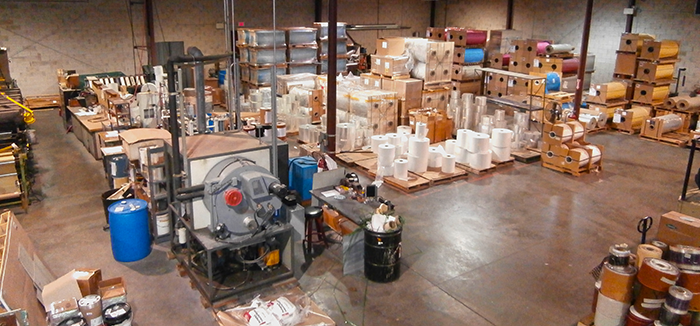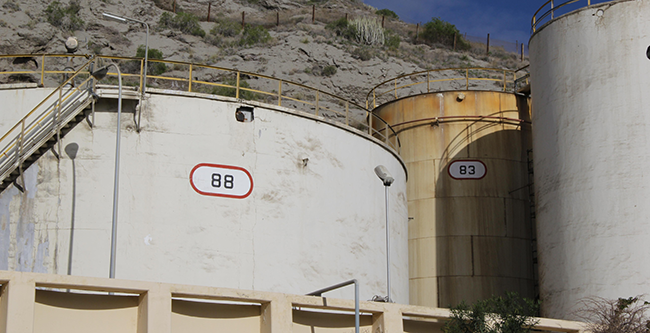The TRI Reporting deadline of July 1ST is approaching, fast. This time of year, our phones start ringing off the hook with worried folks asking for any and all information about reporting regulations. Here we discuss what we hear on an almost daily basis from people calling and emailing us.
The number one question we get this time of year with regards to Toxic Release Inventory Reporting (aka Form R Reporting, or Section 313 Reporting, whatever you want to call it) is relatively short and sweet:
What do I need to report for TRI Reporting?
It's a fantastic question. If you need to report (just remember, not everyone needs to do Section 313 Reporting), then you have to report any and all applicable chemicals.
Which makes the question of what do I need to report for TRI Reporting pretty hard to answer. Just like I tell everyone on the phone, or via emails, it really ultimately depends on several things.
With something as serious as this can be, I hate to say it depends, but honestly, it really does depend on several things. There is no one answer for anyone. Even if you have two of the same types of facilities, you may have different reporting requirements.
On a side note, if you're unsure what this even is, check out this article which gives a good overview on What is Toxic Release Inventory Reporting?

How can I figure out what I need to report for TRI Reporting?
Let's get one few things straight first.
This is not Tier II Reporting. This is Toxic Release Inventory Reporting. Big difference. To learn more, check out this article on What is Tier II Community Right to Know Reporting?
Got it? Ok, let's proceed.

Here's how I tell people to figure out if they need to report, and what to report on.
- Review you Safety Data Sheets. They'll list, to an extent, what's in you products, materials, etc. Make sure you have the most current version (because the composition does change). See the listing of chemical names on each SDS? Those are potential reporting targets. Just be warned, not all products or materials have an SDS, and even if they do, there still may be additional chemicals to be concerned with. For example, Portland cement used in concrete is known to have reportable levels of lead and occasionally mercury, despite what the SDS, rep, or supplying company may say. The EPA knows it and is enforcing this hard across the country. Bottom line, make darn sure you're double checking everything.
- Compare your chemicals to the USEPA's List of Lists. Click that link for the list, and compare it to what you've found you have on site. Remember, not all chemicals have to be reported, just those identified by the USEPA as being "toxic".
- Figure out how much of that product you actually used. Figure out how much of the chemicals from the SDS were part of your process during the past calendar year. Reporting is required for any chemical that is manufactured, processed or otherwise used in excess of applicable reporting thresholds. For most chemicals, that means it has to be >1% of any mixture, and has to be manufactured or processed over the course of the past calendar year in excess of 25,000 pounds, which is the most common chemical threshold. Chemicals “otherwise used” have a reporting threshold of 10,000 pounds. Additionally, there are a whole host of chemicals that have much lower thresholds, including those known as PBT chemicals (persistent, bioaccumulative toxic chemicals) such as lead and mercury which can have much, much lower reporting thresholds.
- Do some math. You’ll need to convert the composition of the chemical in the material you have the SDS for into pounds used during the past year. Trust me, it's about as easy as it sounds… So while it's not the simplest thing to do, it can be done fairly easily by using the chemical information found on the SDS. If any step might require some outside help, this is probably it. In all honesty though, if you hire someone to help you here, have them look over what you've done so far. Let an expert review your work and confirm you're right.
- Compare your results to reporting thresholds. Compare the findings of the previous step with reporting thresholds. Remember, most thresholds are 25,000 pounds over the course of the year, while some are 10,000, and in very rare cases, for really nasty chemicals, the threshold is 100 pounds. If you exceed the reporting threshold, you need to report that chemical. That’s it, fairly easy.
So like I said above, this really is going to depend on your facility and how much of the materials and products were used, manufactured, or processed. It's going to most likely change on a facility by facility basis, so don't copy your findings for one location for another.

I've figured out what I need to report for TRI Reporting, now what?
You've completed the first half of the battle. It's called Toxic Release Inventory Reporting for a reason. Section 313 Reporting is about not only figuring out what you have, but how it was… released! The USEPA wants you to report on the releases to the environment of the chemicals that made that met reportable thresholds.
This is the part you're definitely going to want to hire someone for, because modeling releases, figuring out where they went, and what the most accurate quantity of releases was, can be very, very tricky. I'd like to say this is the part I see people screw up the most, but honestly, this is a long, confusing reporting requirement, and it's often riddled with issues.
While figuring out what to report isn’t that difficult, it does pose a challenge to a lot of people who use the difficulty as a reason to avoid reporting altogether. This is a very bad idea. Reporting is required and failure to do so can carry very large penalties, some of the highest the USEPA can give out. I have personally worked on enforcement cases where clients have received fines well over a million dollars. It’s not worth it. Figure out what needs to be reported, determine the releases, and do your necessary reporting. If you use the steps above, you’ll make sure you report only what you need to and won't miss anything. If you're stuck, get an expert to come in and help. It might be pricey, but it'll be a lot cheaper than getting in trouble.
If you're lost with Toxic Release Inventory Reporting, don't worry, you're not alone. We've helped facilites all over the U.S. get into compliance with Section 313 Reporting regulations, and would be happy to assist you. To learn more, click here to contact us or give us a call at 609-693-8301 to discuss your needs today.



